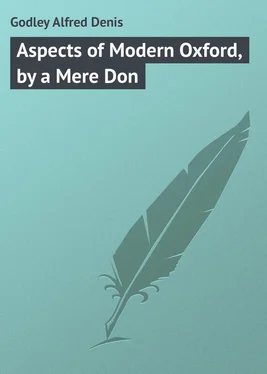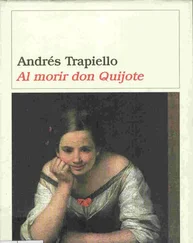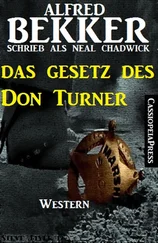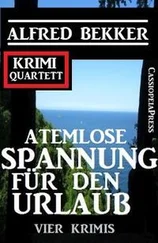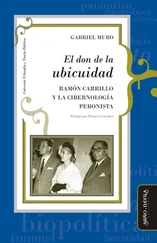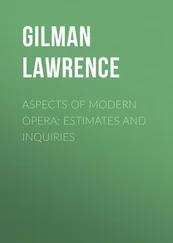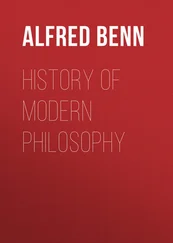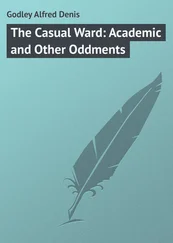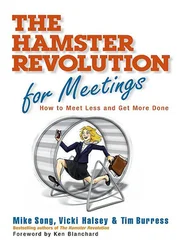Alfred Godley - Aspects of Modern Oxford, by a Mere Don
Здесь есть возможность читать онлайн «Alfred Godley - Aspects of Modern Oxford, by a Mere Don» — ознакомительный отрывок электронной книги совершенно бесплатно, а после прочтения отрывка купить полную версию. В некоторых случаях можно слушать аудио, скачать через торрент в формате fb2 и присутствует краткое содержание. Жанр: foreign_prose, на английском языке. Описание произведения, (предисловие) а так же отзывы посетителей доступны на портале библиотеки ЛибКат.
- Название:Aspects of Modern Oxford, by a Mere Don
- Автор:
- Жанр:
- Год:неизвестен
- ISBN:нет данных
- Рейтинг книги:5 / 5. Голосов: 1
-
Избранное:Добавить в избранное
- Отзывы:
-
Ваша оценка:
- 100
- 1
- 2
- 3
- 4
- 5
Aspects of Modern Oxford, by a Mere Don: краткое содержание, описание и аннотация
Предлагаем к чтению аннотацию, описание, краткое содержание или предисловие (зависит от того, что написал сам автор книги «Aspects of Modern Oxford, by a Mere Don»). Если вы не нашли необходимую информацию о книге — напишите в комментариях, мы постараемся отыскать её.
Aspects of Modern Oxford, by a Mere Don — читать онлайн ознакомительный отрывок
Ниже представлен текст книги, разбитый по страницам. Система сохранения места последней прочитанной страницы, позволяет с удобством читать онлайн бесплатно книгу «Aspects of Modern Oxford, by a Mere Don», без необходимости каждый раз заново искать на чём Вы остановились. Поставьте закладку, и сможете в любой момент перейти на страницу, на которой закончили чтение.
Интервал:
Закладка:
-and the sage's advice was certainly followed in the case of scholars, who were birched for offences which in these latter days would call down a 'gate,' a fine, or an imposition. Authorities tell us that the early fellow might even in certain cases be mulcted of his dress, a penalty which is now reserved for Irish patriots in gaol; and it would seem that his consumption of beer was limited by regulations which would now be intolerable to his scout. Some of the details respecting crime and punishment, which have been preserved in ancient records, are of the most remarkable description. A former Fellow of Corpus (so we are informed by Dr. Fowler's History of that College) who had been proved guilty of an over-susceptibility to the charms of beauty, was condemned as a penance to preach eight sermons in the Church of St. Peter-in-the-East. Such was the inscrutable wisdom of a bygone age.
Details have altered since then, but the general scheme of college discipline remains much the same. Even in the days when practice was slackest, theory retained its ancient stringency. When Mr. Gibbon of Magdalen absented himself from his lectures, his excuses were received 'with an indulgent smile;' when he desired to leave Oxford for a few days, he appears to have done so without let or hindrance; but both residence and attendance at lectures were theoretically necessary. The compromise was hardly satisfactory, but as the scholars' age increased and the disciplinary rule meant for fourteen had to be applied to eighteen, what was to be done? So, too, we are informed that in the days of our fathers undergraduates endured a Procrustean tyranny. So many chapel services you must attend; so many lectures you must hear, connected or not with your particular studies; and there was no relaxation of the rule; no excuse even of 'urgent business' would serve the pale student who wanted to follow the hounds or play in a cricket match. Things, in fact, would have been at a deadlock had not the authorities recognised the superiority of expediency to mere morality, and invariably accepted without question the plea of ill-health. To 'put on an aeger ' when in the enjoyment of robust health was after all as justifiable a fiction as the 'not at home' of ordinary society. You announced yourself as too ill to go to a lecture, and then rode with the Bicester or played cricket to your heart's content. This remarkable system is now practically obsolete; perhaps we are more moral.
Modern collegiate discipline is a parlous matter. There are still the old problems to be faced-the difficulty of adapting old rules to new conditions-the danger on the one hand of treating boys too much like men, and on the other of treating men too much like boys. Hence college authorities generally fall back on some system of more or less ingenious compromise-a course which is no doubt prudent in the long run, and shows a laudable desire for the attainment of the Aristotelian 'mean,' but which, like most compromises, manages to secure the disapproval alike of all shades of outside opinion. We live with the fear of the evening papers before our eyes, and an erring undergraduate who has been sent down may quite possibly be avenged by a newspaper column reflecting on college discipline in general, and the dons who sent him down in particular. Every day martinets tell us that the University is going to the dogs from excess of leniency; while critics of the 'Boys-will-be-boys' school point out the extreme danger of sitting permanently on the safety valve, and dancing on the edge of an active volcano.
In recent years most of the 'Halls' have been practically extinguished, and thereby certain eccentricities of administration removed from our midst. It was perhaps as well; some of these ancient and honourable establishments having during the present century rather fallen from their former reputation, from their readiness to receive into the fold incapables or minor criminals to whom the moral or intellectual atmosphere of a college was uncongenial. This was a very convenient system for colleges, who could thus get rid of an idle or stupid man without the responsibility of blighting his University career and his prospects in general; but the Halls, which were thus turned into a kind of sink, became rather curious and undesirable abiding-places in consequence. They were inhabited by grave and reverend seniors who couldn't, and by distinguished athletes who wouldn't, pass Smalls, much less Mods. At one time 'Charsley's' was said to be able to play the 'Varsity Eleven. These mixed multitudes appear to have been governed on very various and remarkable principles. At one establishment it was considered a breach of courtesy if you did not, when going to London, give the authorities some idea of the probable length of your absence. 'The way to govern a college,' the venerated head of this institution is reported to have said, 'is this- to keep one eye shut ,' presumably the optic on the side of the offender. Yet it is curious that while most of the Halls appear to have been ruled rather by the gant de velours than the main de fer , one of them is currently reported to have been the scene of an attempt to inflict corporal punishment. This heroic endeavour to restore the customs of the ancients was not crowned with immediate success, and he who should have been beaten with stripes fled for justice to the Vice-Chancellor's Court.
Casual visitors to Oxford who are acquainted with the statutes of the University will no doubt have observed that it has been found unnecessary to insist on exact obedience to all the rules which were framed for the student of four hundred years ago. For instance, boots are generally worn; undergraduates are not prohibited from riding horses, nor even from carrying lethal weapons; the herba nicotiana sive Tobacco is in common use; and, especially in summer, garments are not so 'subfusc' as the strict letter of the law requires. Perhaps, too, the wearing of the academic cap and gown is not so universally necessary as it was heretofore. All these are matters for the jurisdiction of the Proctors, who rightly lay more stress on the real order and good behaviour of their realm. And whatever evils civilisation may bring in the train, there can be no doubt that the task of these officials is far less dangerous than of old, as their subjects are less turbulent. They have no longer to interfere in the faction fights of Northern and Southern students. It is unusual for a Proctor to carry a pole-axe, even when he is 'drawing' the most dangerous of billiard-rooms. The Town and Gown rows which used to provide so attractive a picture for the novelist-where the hero used to stand pale and determined, defying a crowd of infuriated bargemen-are extinct and forgotten these last ten years. Altogether the streets are quieter; models, in fact, of peace and good order: when the anarchical element is loose it seems to prefer the interior of Colleges. Various reasons might be assigned for this: sometimes the presence of too easily defied authority gives a piquancy to crime; or it is the place itself which is the incentive. The open space of a quadrangle is found to be a convenient stage for the performance of the midnight reveller. He is watched from the windows by a ring of admiring friends, and the surrounding walls are a kind of sounding-board which enhances the natural beauty of 'Ta-ra-ra-boom-de-ay' (with an accompaniment of tea-tray and poker obbligato ). Every one has his own ideal of an enjoyable evening.
II-OF UNDERGRADUATES
'In the sad and sodden street
To and fro
Flit the feverstricken feet
Of the Freshers, as they meet,
Come and go.'
Whatever the theory of their founders, it is at no late period in the history of colleges that we begin to trace the development of the modern undergraduate. It was only natural that the 'gentle natures and studious habits' of a select band of learners should undergo some modification as college after college was founded, and comparative frivolity would from time to time obtain admission to the sacred precincts. The University became the resort of wealth and rank, as well as of mere intellect, and the gradual influx of commoners-still more, of 'gentlemen commoners'-once for all determined the character of colleges as places of serious and uninterrupted study. Probably the Civil War, bringing the Court to Oxford, was a potent factor in relaxation of the older academic discipline; deans or sub-wardens of the period doubtless finding some difficulty in adapting their rules to the requirements of undergraduates who might from time to time absent themselves from chapel or lecture in order to raid a Parliamentary outpost.
Читать дальшеИнтервал:
Закладка:
Похожие книги на «Aspects of Modern Oxford, by a Mere Don»
Представляем Вашему вниманию похожие книги на «Aspects of Modern Oxford, by a Mere Don» списком для выбора. Мы отобрали схожую по названию и смыслу литературу в надежде предоставить читателям больше вариантов отыскать новые, интересные, ещё непрочитанные произведения.
Обсуждение, отзывы о книге «Aspects of Modern Oxford, by a Mere Don» и просто собственные мнения читателей. Оставьте ваши комментарии, напишите, что Вы думаете о произведении, его смысле или главных героях. Укажите что конкретно понравилось, а что нет, и почему Вы так считаете.
